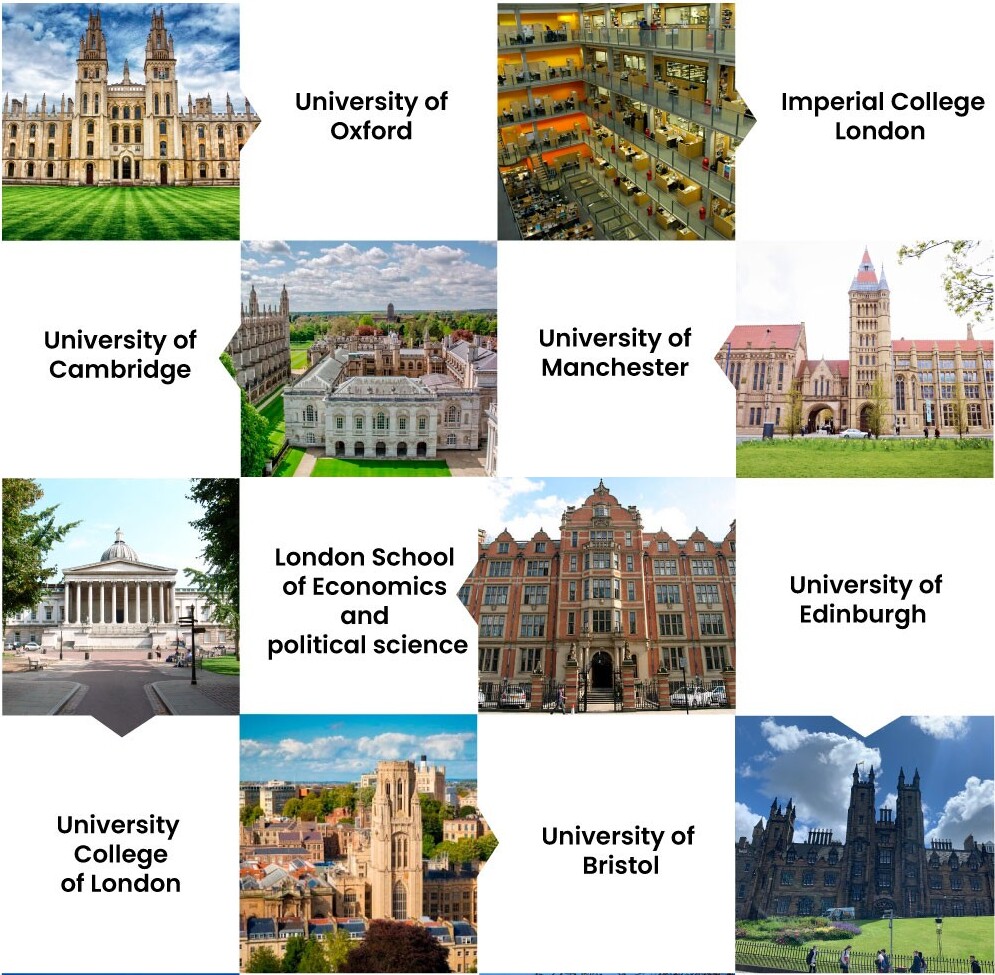+91 9116076837
info@wtsvisa.com
The study is primarily about international parameters where quality education, cultural diversity, and promising global career prospects play prime roles. WTS Visa Consultancy deals with the provision of expert guidance in university selection, application, visas, and finances to help students realize their dreams of studying abroad. International universities are a good option for students who wish to build their careers since they have world-class education, advanced best universities to study abroad, research facilities, and globally accepted degrees. Besides, students would study abroad in culturally diverse settings, where they expect to learn communication skills and network with people from different backgrounds. This experience not just enhances their academic knowledge but also develops their best scholarships for international undergraduate students personality and independence skills. Global market demand for professions has always been on the rise, making an international degree a leap into an enhanced career. At WTS Visa Consultancy, we assure that students get support at every level to ensure an easy transition to their favourite university.

Happy & Satisfied Students
Top-Ranked Universities
Experienced Education Consultants
Years of Proven Expertise
The study in Abroad cost for Indian students also includes living expenses, which vary by city and lifestyle. On average, students spend between €20,000 - 25,000 per year.
| Country | Tuition Fees (Per Year) | Living Costs (Per Year) |
|---|---|---|
| USA | $20,000–$50,000 | $12,000–$18,000 |
| UK | £10,000–£40,000 | £10,000–£15,000 |
| Canada | CAD 15,000–CAD 40,000 | CAD 10,000–CAD 15,000 |
| Australia | AUD 20,000–AUD 45,000 | AUD 18,000–AUD 25,000 |
| Germany | Free (Public Universities) | €10,000–€15,000 |
| France | €3,000–€15,000 | €10,000–€15,000 |
| Country | Tuition Fees (Per Year) | Living Costs (Per Year) |
|---|---|---|
| USA | $20,000–$50,000 | $12,000–$18,000 |
| UK | £10,000–£40,000 | £10,000–£15,000 |
| Canada | CAD 15,000–CAD 40,000 | CAD 10,000–CAD 15,000 |
| Australia | AUD 20,000–AUD 45,000 | AUD 18,000–AUD 25,000 |
| Germany | Free (Public Universities) | €10,000–€15,000 |
| France | €3,000–€15,000 | €10,000–€15,000 |
International students face heavy expenses in tuition and living costs. To ease their burden in any way necessary, many universities and organizations also offer scholarships and financial aid. Scholarships are awarded based on academic merit, financial need, or certain abilities. The following are examples of scholarships that are widely known:

Applying to international universities calls for specific documents to satisfy admission and visa requirements. These documents consist of:
At WTS Visa Consultancy, we guide students through the process of assembling and organizing all necessary documents for the application without any irritancy.
Free Expert ConsultationReceiving a student visa is an important procedure when studying abroad. The visa process usually entails satisfaction of best scholarship websites for international students eligibility requirements, documentation preparation, application submission, interview (if required) attendance, and waiting for approval. Each country has distinct regulations regarding visa application procedures, and therefore students must follow each of these steps closely in order to apply successfully.
At WTS Visa Consultancy, we help students with all aspects of the visa, making sure they meet all requirements for getting through successfully.
Free Expert ConsultationThe selection of the nation for pursuing higher education requires a critical evaluation of many aspects; these include rankings of universities available, the cost of living, job opportunities, and quality of education as a whole. A student will research institutions worthy to study at, keeping in mind his or her academic and career goals. Different countries offer different costs of living to top ranked universities worldwide thus, it is important to budget for accommodation, food, and several other expenses. Work opportunities, at the same time with studies, become subjective while practical and emotional financial support is concerned. The quality of education, teaching experiences, and research facilities here present major parts of the evaluation for a satisfying academic life that leads to career success. Some of those countries are:
Choosing the best international university will require careful planning and research. The first step best colleges for MBA abroad is for the students to set up career plans to enable them to find a university with quality programs in the student's areas of interest. The next area of interest should be rankings, specialization of faculty, and accreditation to ensure that the institution meets global standards. Also, students look at the cost of education, which is usually high when studying abroad, as well as tuition and living costs. They should also explore options for funding best European universities for international students scholarships and/or financial aid to cut costs. Furthermore, job placement rates, internships offers, and successful stories of alumni are indicators that can help understand the industry connections of the university. Knowing the visa processes, possibility of working and living style in the desired country are also beneficial for students on how to adapt.
Applying to an international university is an exciting yet intricate process requiring enormous planning and preparation. Some key steps must be observed to ensure one's application success. From short listing a university to obtaining a student visa, each step here plays an equally important role in making the study abroad procession.
Key Steps
It is permissive for some countries to allow international students to work while studying and meet expenses and gain work experience. The students can find part-time jobs on campus or work in local establishments such as cafes, retail stores, and libraries. Many internships and co-op programs provide best scholarships for international students industry-related work experience, which adds to their profile. After graduation, students can apply for post-graduation work permits in their respective countries for further professional experience in their field. Work hour limits vary from country to country. In the USA, UK, and Canada, students are allowed to work for a maximum of 20 hours a week, while in Australia, the maximum is 40 hours every fortnight. In Germany, the best universities for international students are allowed to work only 120 full days or 240 half days a year. Later, graduates can assess the possibility of a work permit or pathway to permanent residency according to the country’s immigration laws. This opportunity allows students to build a firm base for their careers later on.
Start your educational adventure with expert guidance and personalized support.
Get a Free Consultation!